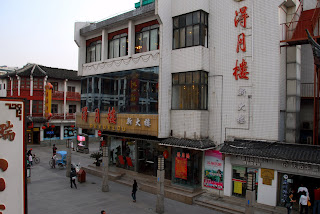Growing up in the West (USA specifically for me), we saw professional lifestyles all around us. From watching our parents come home from work, visiting them at their offices, watching the multitude of television shows showing professional folks (even though that wasn’t real life, I saw how responsible Charles Ingalls was on Little House on the Prairie….for example), and then there was school. School was, at least for me, a good trainer in eventually functioning in the outside world. We have career development classes, classes that give you the starter tips on entering the “big peoples’ world”. I can remember in that one particular class we learned things such as how to write a check, pay structures in companies, how to clock in, overtime pay, salaries…..basic job-life concepts.
Then, at 15, I started a part-time job. As a child, I knew one of my ultimate goals in life was to work and to work hard. I couldn’t wait to start working; I wanted that thrill of putting my hand to the plow, sowing my own seed of effort and reaping the harvest of pay. I come from a family of hard workers. The “Protestant Work Ethic” definitely resonated in my home. And it still does; for me, you grow up, you work hard, period. By 16 and 17, I was still in high school and working close 35 hours a week; not as much as some, but more than most. Balancing school and that much work was a task, but I loved every minute of it… the independence, the freedom, the pay.
Then, after coming to China in 2001, I learned there’s a whole chunk of humanity that has a different view of work. Especially in the modern-day China in all its glory, work is a completely new concept to most of the young people I’ve met in my business life. Most Chinese I come across are around the ages of 25 to 30.
Folks here never have part-time jobs. In fact, the Asian mindset doesn’t understand why in the Western world a parent would allow their child to work if the family has sufficient money. Perhaps to the Asian mind, it shows a lack of prosperity or lack of able to care for your young.
Kids here are drilled to study until college. They cram their brains with knowledge in a memorization form, they learn no practical skills for the real world, they get out of college and they are green as grass. This article says it best how one of the main selling points of going abroad is learning the “soft skills” that are seldom if ever taught in China.
According to this Xinhua report: "Generally speaking, overseas schools provide a more flexible learning environment and pay more attention to students' soft skills such as decision-making, initiative, leadership, teamwork and sociability, which are often lacking in a Chinese school's curriculum," he said.
Telling a Chinese person that I once would work until 1am washing dishes doesn’t elicit respect for hard work, they simply think, “why would you do that?” Because in China, only poor people or low educated people would do such a task. Manual labor is for the lower-tier portions of society. But that’s why here, you have a normal middle class professional man, who doesn’t know how to do anything handy around the house. Someone has always done it for him. In discussing Chinese expats:
“Back home, Chinese managers have housemaids. “They are not used to cooking for themselves,” says Mr So, a telecoms executive. When sent to work in rich countries, “they even have to clean their own toilets,” he chuckles.”
Are these just cultural differences? Perhaps but I lean towards answering “no”. A lot of what I’m describing here are results of factors that have controlled the country. I don’t specifically mention these factors on my blog, but you can get the idea of to what I’m alluding. In a nation with this background, work doesn’t translate over into something that can be beneficial to your “intangibles”. Character, spirituality, inner-growth; not connected to work.
Much of my time in managing wasn’t to manage them on job pointers, techniques and skills for the industries but on life lessons. How to sit up straight, how to make breaks in a written paragraph, how to respond to a verbal phrase, how to acknowledge a physical movement in your line of sight, how to organize surroundings, how to put the toilet paper out of sight, how to wipe water off a table…I kid you not.
I’ve wondered at times what kind of training these kids got at home or what they learned in school. The longer I’m in China, the more I’ve stopped questioning it, and work to understand that (to use a tired cliché) “it is what it is.” I didn’t choose to be born where I was born and I didn’t choose my background and training. They didn’t either. Therefore I can slow down during the day and share with others what I was graciously taught.
One thing I hate is being taught the obvious, but after training here, I never worry about telling someone the obvious; because what is obvious to one culture is certainly not obvious to another.
Related Posts: click on below title for similar topics


No comments:
Post a Comment